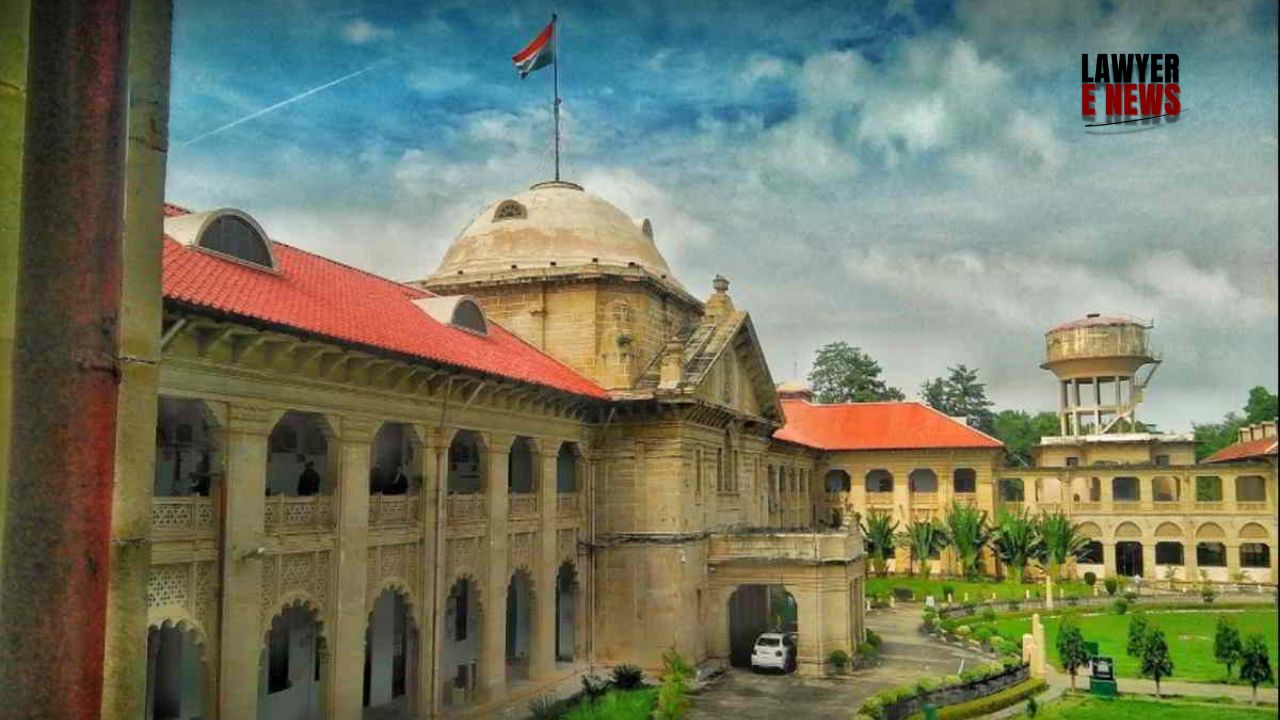-
by Admin
15 February 2026 5:01 PM



The Allahabad High Court, in a significant ruling, has upheld the cancellation of a registered will alleged to have been executed under fraudulent circumstances, affirming the decisions of both the trial court and the first appellate court. The judgment, delivered by Justice Kshitij Shailendra, reinforces the jurisdiction of civil courts in cases involving the cancellation of wills, even when such disputes concern agricultural land.
The case involved a dispute over a will allegedly executed by Harswaroop, who had two sons, Ram Autar (the plaintiff) and Mangoo (defendant no. 2). The plaintiff, Ram Autar, challenged a will that purportedly bequeathed agricultural land to the wife of Mangoo, defendant no. 1. The plaintiff argued that the will was obtained fraudulently when Harswaroop was seriously ill, and without the plaintiff’s knowledge. The defendants, however, contended that the will was executed freely by Harswaroop and had already been registered and entered into the revenue records.
The primary legal question revolved around whether the suit for cancellation of the will could be maintained in a civil court, given that it pertained to agricultural land, which is generally under the jurisdiction of revenue courts as per Section 331 of the U.P. Zamindari Abolition and Land Reforms Act, 1950. The appellants argued that the civil court lacked jurisdiction because the dispute involved agricultural land and the plaintiff was not recorded in the revenue records.
The High Court, however, reaffirmed that the civil courts have exclusive jurisdiction to cancel void or voidable instruments, such as wills, under Section 31 of the Specific Relief Act, 1963. The court emphasized that the existence of such documents, if left unchallenged, could cause serious harm to the rightful heirs. It was noted that the plaintiff sought cancellation of the will to remove a cloud on his title, and this relief could only be granted by a civil court.
The trial and appellate courts found that the will in question was executed under suspicious circumstances and was likely a result of fraud. The High Court upheld these findings, noting that the original will was neither produced in court nor proved according to legal requirements. The court concluded that the will had been fabricated to deprive the plaintiff of his rightful share of the property.
The court analyzed whether the bar under Section 331 of the Act was applicable. It held that while the U.P. Zamindari Abolition and Land Reforms Act is a special law governing agricultural land, it does not oust the jurisdiction of civil courts in cases involving the cancellation of void or voidable instruments like wills. The court highlighted that the main relief sought by the plaintiff was the cancellation of the will, a relief that the revenue courts cannot grant.
The High Court’s judgment drew extensively from precedent, particularly the decisions in Ram Padarath v. Second Additional District Judge and Bismillah v. Janeshwar Prasad, which established that civil courts retain jurisdiction in matters involving the cancellation of instruments, even when these relate to agricultural land. The court distinguished the present case from earlier rulings that were cited by the appellants, noting that the plaintiffs in those cases either sought declarations of title or were not recorded tenure holders.
Justice Kshitij Shailendra remarked, “The civil court’s jurisdiction to cancel a void or voidable document is not ousted by the provisions of Section 331 of the U.P. Zamindari Abolition and Land Reforms Act, 1950. Such suits, which seek to remove a cloud on the title by invalidating fraudulent instruments, lie squarely within the civil court’s domain.”
The Allahabad High Court’s decision underscores the authority of civil courts in handling cases involving the cancellation of wills, even when these disputes concern agricultural land. By affirming the lower courts’ findings, the judgment provides clarity on the interplay between civil and revenue court jurisdictions, particularly in matters involving voidable instruments. This ruling is expected to influence future cases where similar jurisdictional challenges are raised.
Date of Decision: 21 August 2024
Mangoo Singh And Ors. Vs. Ram Autar
